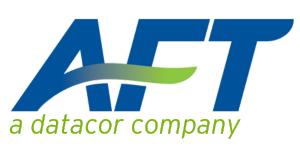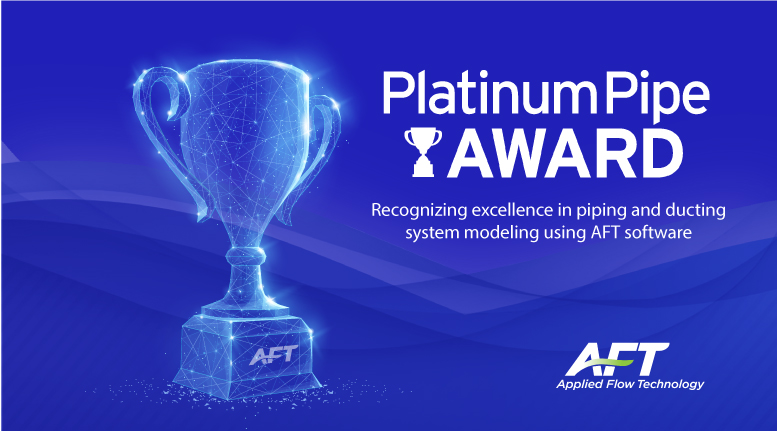AFT Documentation Portal
AFT Fathom FAQ's
There are several aspects to AFT software verification. First, AFT has been compared to published data where it exists. Available published data is usually for a single pipe, which is not very challenging for a network solver. Models, comparisons and explanations for such published predictions are given the Verification folder. Second, it can be verified that AFT predictions agree with the fundamental equations for networks. Finally, AFT predictions have been compared to test data and other analytical methods on numerous occasions and good agreement has been shown.
Yes, AFT Fathom can run off the network or local PC. When installed on a network, the number of concurrent users is limited to the number of licenses purchased. See the Installation page for information on installing the software with either a USB key or an eLicense.
Capabilities

There are no theoretical limits to model size, but there are a few practical limits. First, AFT Fathom accepts pipe and junction ID numbers up to 9999. This limits the model size to 10,000 pipes and 10,000 junctions. Before you reach that limit, however, you will likely encounter a limitation of your available RAM to hold all of the solver parameters. To determine how much RAM you need, add up the number of branches and tees in the model. Take the square of this number. Then multiply it by 32 to get the amount of RAM that must be available. For example, with 1,000 branches and tees, the square is 1 million, and after multiplying by 32 you need 32 million bytes of RAM (i.e., 32 MB).
Reporting
Whereas the Output Control window allows you specify units for all parameters, when in the Output window viewing results you can quickly change the units for parameters in the tabular displays by double-clicking the column header.
Costing
No. Depending on your goal, you need only specify the costs for which you are interested. If you are looking for just a first-cost estimate then you need to only specify Material and possibly Installation. Remember, these are very broad categories and can be tailored to meet your specific application.
Database
See ‘Libraries’ in the AFT Fathom help file.
Modeling
The Centrifugal (Rotodynamic) Pump Model offers the option of Sizing a pump. By entering either a volumetric of mass flow rate, the total developed pressure is calculated and displayed in the Pump Summary section of the Output Window. This head and power at the pump at the given sizing flow rate can be given to a pump manufacturer to find a point with a similar operating point. Alternatively, Intelliquip can use the sizing output to choose a pump (See the Aft Fathom Pump Selection video tutorial for more information).
Interface
Open the Junction Properties window, click the Optional folder tab, and then click the Change Icon button.
Modules
A wide range, including liquid levels, valve open/close, pump speed changes, relief valve opening and more. Just as important, Fathom XTS can model time transients, event transients and inherent transients. Time transients are changes that are specified to occur based on the model time. Event transients, on the other hand, are triggered by an event that occurs in the system. Many kinds of events can be used, such as pressure, flow, velocity and liquid level. Inherent transients are changes that occur by the very nature of a system component. One example would be the liquid level change that occurs in a finite reservoir (or tank), while another would be a check valve opening and closing as a result of flow reversals.


